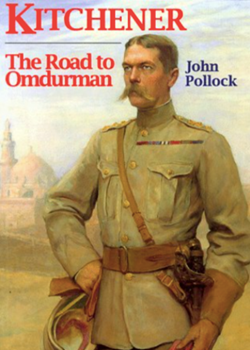Kitchener by John Pollock
- Home
- World War I Book Reviews
- Kitchener by John Pollock

Constable, 2001, 598pp., £20.
ISBN 0 09 480340 4
Earl Kitchener of Khartoum remains a source of fascination for historians and biographers.
The archetypal Imperial warrior, he presided over the British war effort in the early years of the Great War. By adopting methods of total war, planning for a long conflict and raising a mass army of volunteers, Kitchener pursued a policy, which weakened British power and hastened the end of the Empire he served for so long. His decision was undoubtedly the right one, the only possible response to the threat posed by Germany, but it does not lessen the irony.
John Pollock has previously published a book on Kitchener's imperial years. Now he finishes the story, the earlier book being included in this volume to form a complete 'life'. Mr Pollock is clearly an admirer of 'K of K', and the tenor of his Kitchener is very different to those of many debunking biographies of recent years. Kitchener was far more than a great poster (as Margot Asquith described him), and Mr Pollock scores a direct hit with his insistence that Kitchener's role in recognising that the war had to be waged as a total conflict was of vital importance. But overall, Mr Pollock's picture of his subject as a Great Man seems a little overdone. Although a total warrior, when he set off in HMS Hampshire on his fatal last journey, Kitchener was already an anachronism in a war effort gearing up for the Somme. The genuine grief at his death felt by the masses was mingled with sighs of relief among the elite.
Kitchener is a good read, and a useful addition to Great War literature, although there are some surprising omissions from his bibliography, notably David French's work on British strategy. It can usefully be read alongside previous works on Kitchener's role in the Great War, notably George H Cassar's 1977 study Kitchener: Architect of Victory but it does not replace them.
Review by G D Sheffield





